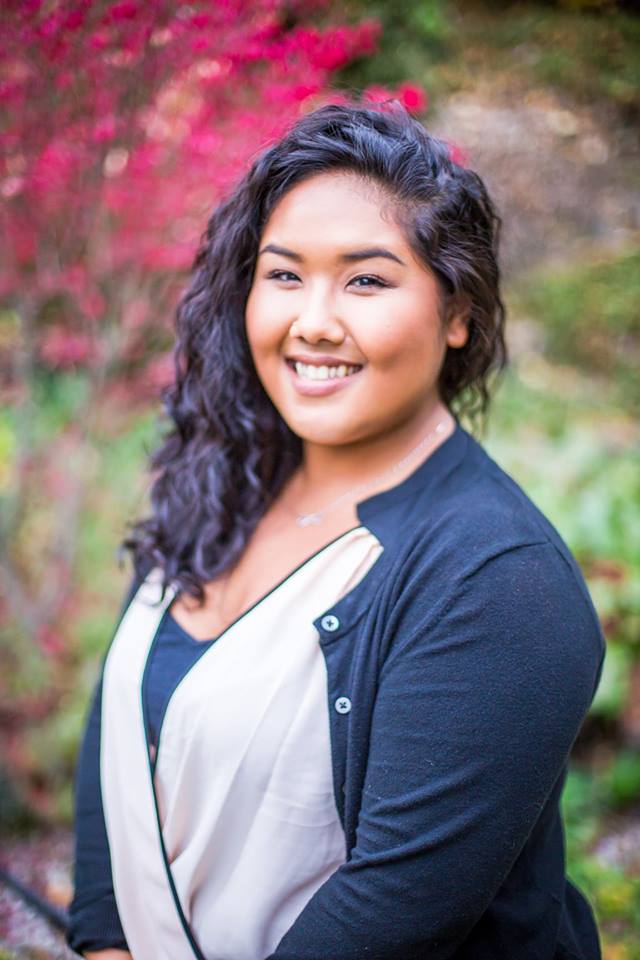Poetry and Persistence: Belonging and Expression for First-Gen Students of Color

“I want to help minoritized students flourish and thrive in higher education. As a Cultural Studies student who wishes to go into Student Affairs, it is important for me to think of the best ways to serve and support diverse populations of students. I am very interested in using poetry as a way to cope, to heal, to create communities, and to make meaning. Being accepted into a university and going to class is not enough to help students succeed in college. All students are knowledge creators, and poetry is just one of the ways in which minoritized students can resist the restrictions of academic institutions.”
Angie Cuevas Winkle ('18, Master of Arts in Cultural Studies) knew from her own experience that poetry could be a source of power, community, and insight. As a first-generation student of color, spoken word and poetry had helped her navigate a predominately white institution, claim her belonging, and pursue a major in comparative ethnic studies.
Yet, in looking back as an undergraduate student, Angie says that “there were very few curricular opportunities where I could incorporate the artistic with the academic. It was the MA in Cultural Studies that allowed me to challenge traditional forms of academic knowledge and show how the creative arts are also forms of inquiry and knowledge making.”
Angie’s own experience led her to hypothesize a connection between poetry and persistence for minoritized students in higher education. For her capstone project, she decided to explore the creative and generative role of poetry for students like herself. The goal of her workshop was to deepen appreciation of creative arts as tools of resistance among students who already write poetry as well as those who have never have. She hoped, ultimately, to center the voices of minoritized students.
In devising the workshop, Angie engaged the new UWB Diversity Center, and specifically its Director, Miguel Macias and Program Manager, Ariana Chini, as partners. While the workshop would focus on an undergraduate audience, Angie’s workshop suggested ways that the Diversity Center might productively engaged UWB graduate students in its mission.
Angie designed a workshop wherein students would create, share, and reflect on their learning together. She began by sharing the story of her own educational and artistic journey. Next she focused participants on the process of creating poetry, using a prompt known as a “Where I Am From” poem. Widely used by community-based arts practitioners, the prompt invites participants to mine their own experiences for sensory detail, memory, and evocative language in response.
Participants then shared the poetic pieces they created, and others they might have brought with them, open-mic style. This was followed by open discussion and reflection on the role of poetry and its uses within student’s lives. Angie notes that “Critical discussion of shared poetry is something that is often left out of the open mic process, and I was interested in further investigating what sharing this part of the writing process could do for the poet, student poet, or student interested in writing poetry.”
The Poetry & Persistence workshop was made possible with Community Engagement Funds provided by the IAS Graduate Studies Excellence Fund, which supported workshop outreach and refreshments. It took place on March 8, 2018, and was attended by 12 students. As an exercise in applying theory to practice and theorizing from experience, it formed a core piece of Angie’s capstone research for her Cultural Studies degree. Angie graduated in June 2018 and immediately began a position at the College Success Foundation.
Angie shares an excerpt from her own “Where I’m From” poem, here:
Excerpt
by Angie Cuevas WinkleWhere I’m from,
adobo and greens meet on an island over seas
Bringing palm trees to where two teenagers fall
in love for a moment,
mixing kare kare with tears,
ham hocks with empty beer cans,
and a young child they tried to raiseWhere I’m from,
Carlo Rossi stains my grandma’s lips
as she crotchets intricate furniture doilies in a
living room that smells faint of Marlboro
A pot of my favorite sinigang
simmers on the kitchen stove.Where I’m from,
green mangos and bagoong
are eaten on summer days,
fed by aunties
whose hands feed their children,
whose hands feeds you
whose hands feed themWhere I’m from,
children are cautioned
to not stay out in the sun too long,
to say their prayers,
to respect their elders,
and to never speak back…
